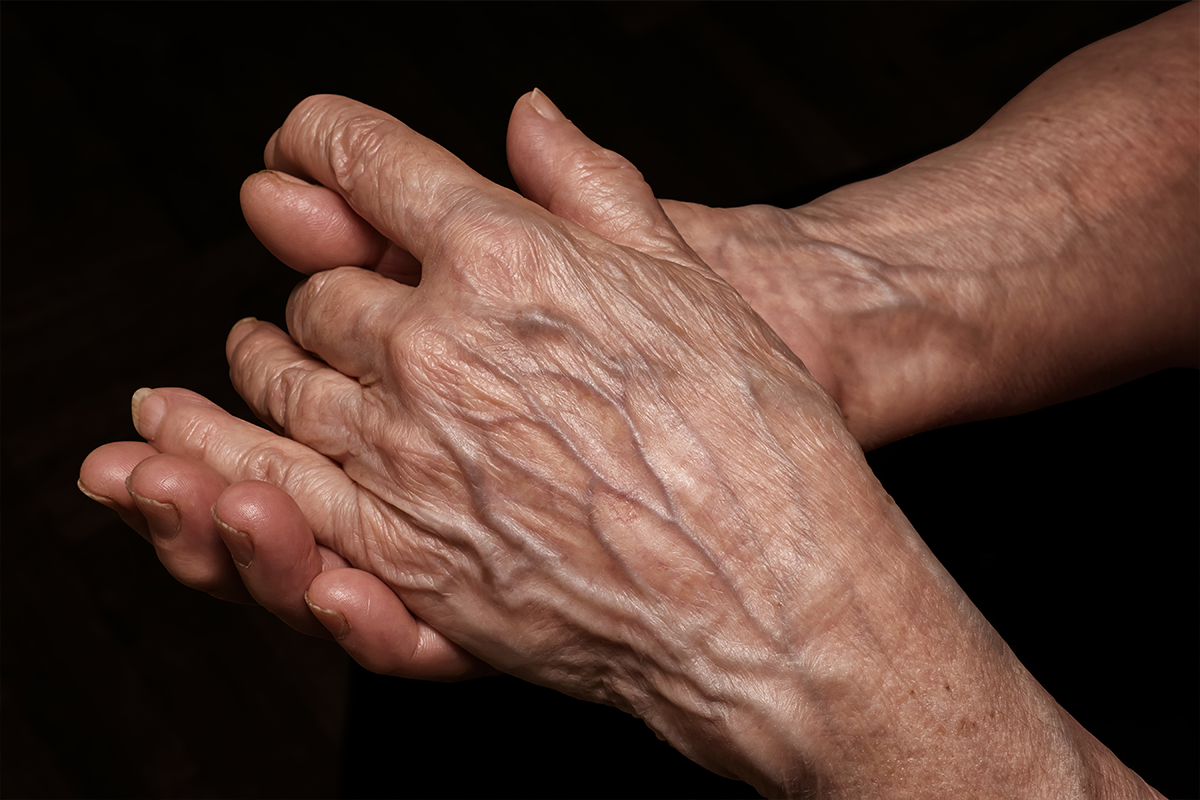Advertisement
The Browning Effect
Imagine if you will the intricate network that makes up the human body. Think of the organs and tissues, the numerous hormones, neurotransmitters, peptides and amino acids. Next, think of the blood cells, the immunoglobulins-the B-cells and T-cells, the serum proteins, and finally, the skeletal system, the muscular system, the skin that envelops and protects … Continued

Imagine if you will the intricate network that makes up the human body. Think of the organs and tissues, the numerous hormones, neurotransmitters, peptides and amino acids. Next, think of the blood cells, the immunoglobulins-the B-cells and T-cells, the serum proteins, and finally, the skeletal system, the muscular system, the skin that envelops and protects them all and the eyes, teeth, hair and nails. Now realize that everything mentioned is comprised of the amino acids that make up proteins.
Glycation transforms the body’s protein structures (skin, arteries, blood, organs, muscles, enzymes) into nasty unrecognizable substances known as advanced glycation endproducts (AGEs). As glycation takes place, the structure of the proteins becomes altered until it is barely recognizable. When sugar consumption rises, so do the damaging effects of glycation.
The body is more than 60 percent protein (dry weight). All that protein is susceptible to damage from a substance we have all come to associate with energy sugar. No doubt sugar is one of the most vital commodities in living things. It helps generate the energy for athleticism or repair following an injury and is the main fuel required for running our brains. But the body only requires small amounts of sugar to run its metabolic machinery between one and two teaspoons of circulating sugar at any one time. Any more sugar and problems arise.
Today the average person consumes approximately 150 pounds of sugar a year and it’s causing our metabolic machinery to run amok. Besides increasing the incidence of sugar disorders, such as hyperglycemia (high blood sugar), hypoglycemia (low blood sugar), hyperinsulinemia (high insulin) and type II diabetes, excess sugar also damages the body’s proteins in a “browning effect” called glycation.
The Glycation Process
Research shows that glycation slowly and gradually “cooks” us from the inside out. The process is a reaction between sugar molecules and protein. It can be likened to the browning of foods as they cook. Take a turkey as it bakes in the oven. Natural sugars gradually interact with the proteins in the turkey’s skin. With time, the sugars and proteins become bonded (cross-linked), creating a brownish hue. The longer the turkey bakes, the deeper the effect. Just as the skin of a turkey becomes brown from basting in the oven, the human interior also “browns” from years of cooking at natural body temperature.
The browning effect is now believed to be a major factor behind wrinkling of the skin, osteoarthritis, cataracts, atherosclerosis (thickening of the arteries), some cancers and damage to the immune system. Glycation also contributes to the premature aging we in North America have come to associate with middle age. It’s now believed to be partly responsible for the current decline in immune functioning, which leads to increased susceptibility to disease and infection. Cancer is often referred to as mutated cells arising from damaged DNA, which contains all the genetic information necessary to create new cells. However, DNA is highly susceptible to AGE reactions from glucose, which in turn causes abnormal cells to be produced (cancer).
There are about 18 million type II diabetics (roughly 90 percent of all diabetics) in North America, with half of them undiagnosed. The levels of cross-linked proteins found in diabetics are two to three times those people of non-diabetic status. By decreasing AGEs in the body, millions of diabetics would likely take fewer medications, have more energy, greatly improve their health and live longer.
Protect Your Proteins
Glycated proteins can hang around for months or years in the body, causing even more problems by damaging other proteins around them in a domino-like effect. This ongoing damage can now be minimized or prevented in the first place by wise dietary choices and natural AGE inhibitors.
Reducing sugar consumption is one way to prevent premature aging. Since steamed and boiled vegetables, whole grains, beans and fruits are made with water, they do not cause significant AGE production because water prevents sugars from binding to proteins. A good reason to eat your fruits, vegetables, whole grains and beans, fresh, boiled or steamed!
Some nutrients have also been shown to prevent the formation of AGEs, while others actually reverse AGEs once they have formed. These include:
-
- Specific vitamins such as alpha lipoic acid and inositol.
-
- Glutathione (GSH), N-acetyl cysteine (NAC), L-taurine and other amino acids found in high quality whey protein.
-
- Plant phytochemicals and flavonoids such as full spectrum grape extract.
- Ginger, quercetin, rosemary extract, thyme, turmeric and stinging nettle.
These safe and natural nutrients combine to inhibit cell damage in three distinct ways. First, they supply glutathione and precursor ingredients that allow the body to produce its own glutathione. Research has shown that without sufficient glutathione, the body simply cannot get rid of AGEs. Second, they help balance blood sugar and insulin, thus reducing the likelihood of excess sugars bonding to proteins and forming AGEs. Third, the AGE inhibitors protect against free radicals.
As proteins are found in every area of the body, all systems can benefit from AGE reduction. You may find an improvement in conditions such as reduced mobility, allergies and gum disease, or experience increased energy, a greater resistance to colds and flu and improved muscle and skin tone. So take the necessary measures to protect your body. Your cake may have an extra candle next year, but biologically speaking, you won’t have to show it.




